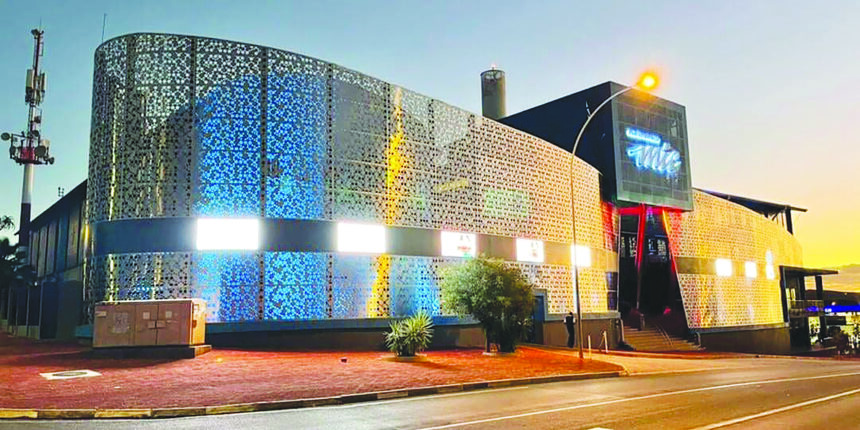The first mobile telephony company in the country, Mobile Telecommunications Limited (MTC), stated it remains unshaken by the potential introduction of Elon Musk’s low earth orbiting satellite communication company, Starlink. This is as Starlink, a wholly owned subsidiary of Musk’s SpaceX, currently faces regulatory hurdles in Namibia and across many other African countries.
At its financial results presentation on Monday, MTC expressed confidence in its ability to maintain its leadership in the domestic telecommunications sector.
MTC leadership boasted it has an arsenal to ensure it continues being the leading company in Namibia’s telecommunications industry. MTC’s chief commercial officer, Octivius Kahiya highlighted their strategic investments over the years, which he believes positions the company uniquely against emerging competition.
“We find ourselves in a unique position where we have done a lot of investment that mitigates any risk that may come in
terms of capacity and our ability to roll out products that are similar to current and future competition,” he explained at the financial results media briefing.
MTC further noted it has developed a robust technological infrastructure that includes physical fibre, air fibre, 4G LTE, and satellite services.
“The combination of these four technologies, along with our careful planning and product innovation, will enable us to mitigate challenges and ensure continued growth,” Kahiya added.
He noted that fixed internet connectivity has been growing at an impressive rate of over 25% annually, a trend he anticipates will persist with MTC’s forward-looking strategies.
Earlier this month, the Communications Regulatory Authority of Namibia (Cran) ordered for Starlink to halt its operations in the country due to the lack of a required telecommunications licence.
Following an investigation, Cran determined Starlink was providing internet services without the necessary authorisation and further warned the public against purchasing or using Starlink equipment, deeming such actions illegal under Namibian law.
Its licence will be operated under local telecommunications service provider Paratus if permission is granted.
The company’s application has been strained by Namibia’s Communication Act.
It outlines that “no licence may be controlled by any person who is not a Namibian citizen or a Namibian company, and not more than 49% of the stock in any licence may be owned by persons who are not Namibian citizens.”
Due to similar ethical and compliance matters, Zimbabwe, South Africa, Senegal, Ghana, and Botswana also rejected Starlink’s operation. Thus far, the status of Starlink’s application to operate as an internet provider in Namibia is unknown.
Starlink has been developed and expanded by the American aerospace company SpaceX, owned by the richest man in the world, Elon Musk. Starlink aims to provide high-speed internet access globally, particularly in underserved and remote areas. Thus far, the network consists of thousands of small satellites operating in low Earth orbit (LEO), which allow reduced latency and improved internet speeds compared to traditional satellite systems. As of June 2024, Starlink has over 6 000 satellites in orbit and serves more than three million subscribers. Starlink executives have refused to budge on local ownership laws in many countries, arguing these sovereign criteria inhibit its ability to rapidly change operational strategy in reaction to evolving market forces.
Financial performance
Meanwhile, MTC’s latest results show the company recorded a 5.85% revenue growth to N$3.2 billion for the just ended financial year of 30 September 2024.
MTC managing director Licky Erastus said the growth is attributed primarily to an increased demand for high-speed data connectivity, new innovative products and services, and growth in roaming.
During Monday’s presentation, Erastus noted MTC has been able to attract new subscribers with value-added products and service offerings that resulted in an increase in the total number of active subscribers from 2.17 million in 2023 to 2.224 million in 2024.
MTC’s capital expenditure increased from N$587.6 million in 2023 to N$715.4 million because of the investment in major projects that continues to support its vision and strategy. This included an additional approval of N$200 million to drive MTC’s own fibre implementation to mitigate the dependency risk on backbone fibre infrastructure.
Furthermore, he stated that MTC made a payment of N$58 million as part of a settlement related to a case against Cran in the mentioned financial year.
This settlement addressed issues concerning regulatory levies that were disputed from 2012 to 2018. The payment was part of an agreement aimed at resolving longstanding disputes regarding the legality of levies.
At the beginning of this year, Cran won a Supreme Court challenge affirming its constitutional validity to levy regulatory fees. The ruling came after a legal battle initiated by MTC, challenged the legality of Cran’s authority under section 23 of the Communications Act.
According to current legislation, Cran can impose a levy to ‘defray’ its ‘expenses’, for the purpose of regulating the telecommunications, postal, and radio spectrum industries. The levy is equivalent to 1.5% of the gross annual income of telecommunications providers.
The legal battle with MTC started in December 2020, and in 2022, the High Court declared that section of the law, as amended, and any regulations prescribed to that provision, as unconstitutional and thus null and void. -mndjavera@nepc.com.na



